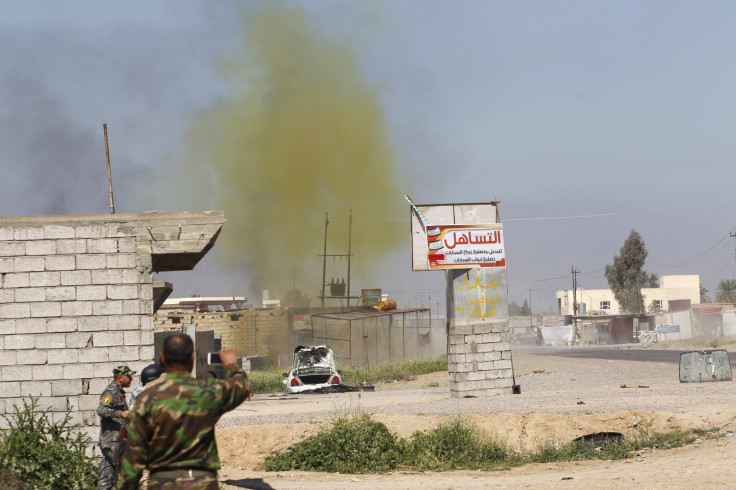Is Isis preparing to unleash chemical weapons on civilians during its last stand in Mosul?
Experts have warned Isis may use mustard gas as a last resort as aid organisations order gas masks.
As US-backed Kurdish and Iraqi forces have prepared for their gruelling assault on the Isis-held stronghold of Mosul, commanders and officials have warned that the Islamic State could once again use chemical weapons – with some fearing the terror group could turn them on civilians and refugees.
The Pentagon said in September that US forces based at Qayyarah Airport had been hit with mortar fire carrying illegal mustard gas. Iraqi Kurdish Peshmerga have said they have been attacked with the crude chemical weapon 19 times across the frontline near to Mosul.
As aid organisations anticipate the likely humanitarian crisis that will unfold in the battle for Mosul, home to 1.2 million inhabitants, the International Organisation for Migration (IOM), which distributes relief kits to vulnerable people from Erbil, has said it is procuring gas masks.
A spokesman for the IOM told IBTimes UK that the decision had been precipitated by reports of the use of chemical weapons in the Iraqi press which were being responded to as a serious threat. "Whenever we have something that we think might be possible we prepare for that but in terms of any confirmed victims, we haven't had anything like that yet," he said.
"None of the people under our protection have had any need for it yet but it is part of our planning and it is part of everybody's planning."
Dr James Revill, a research fellow with Harvard Sussex Programme said claims of the use of chemical weapons in Iraq and in Syria had been credible, adding that crude weapons developed and used by the militant group could be used as a last resort.
"The fact that IS have been able to develop and use crude, scruffy chemical weapons in the past suggest there is some credibility to the idea of such weapons being used again in the future, particularly as a last resort or perhaps as a demonstration of their power," he said.

Revill explained the Islamic State had access to some technical expertise in weapons production, in some cases supported by former Saddam regime officials. He added the purpose of using the devastating but strategically limited weapons was closely linked with the desire to instil fear and win a propaganda war.
"The use of such weapons can inflict casualties on the battlefield as well as potentially terrorising communities and generating media attention," he said.
Chemical weapons have been deployed in Iraq in the past under the Saddam regime when it used them on its own citizens between 16-18 March 1988 in Halabja. Estimates of the number of civilians killed range from 3,200 to 5,000, with many survivors suffering health problems as a result of the use of bombs containing mustard gas, sarin and tabun.
© Copyright IBTimes 2024. All rights reserved.






